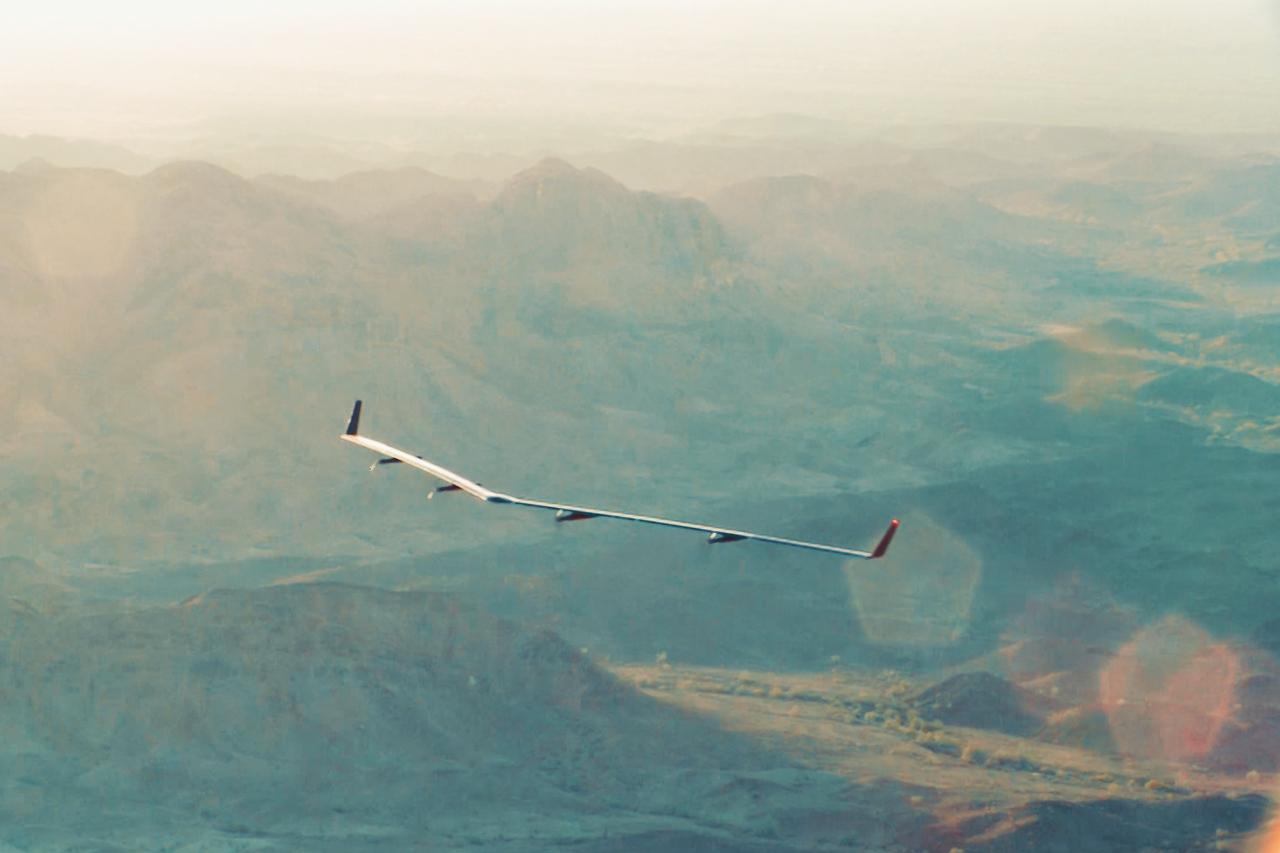Facebook has successfully completed the first full-scale test flight of its Aquila remotely piloted aircraft, a solar-powered high-altitude long-endurance platform designed to bring affordable internet connectivity to remote areas. The flight took place at the US Army's Yuma Proving Ground fcacility in Arizona.
Aquila — a product of Facebook’s Connectivity Lab — is designed to circle a region up to 60 miles in diameter, flying for up to three months at a time, beaming connectivity down from an altitude of more than 60,000 feet using laser communications and millimeter wave systems.
A one-fifth scale version of Aquila has been flying for several months. This initial test flight of the full-scale aircraft was designed to verify operational models and overall aircraft design.
This first functional check was a low-altitude flight lasting more than 90 minutes — three times longer than originally planned. The flight was used to verify aerodynamics, batteries, control systems, and crew training.
Aquila features a high aspect ratio carbon fibre wing and an under-cambered airfoil to optimize its lift-to-drag ratio. The wingspan is similar to that of a Boeing 737. During the day, the aircraft will fly at 90,000 feet to maximize its ability to charge its solar cells. At night, it will glide down to 60,000 feet, taking advantage of gravitational potential energy to consume less power.
Facebook claims to have developed optical transceivers that improve upon the state-of-the-art by approximately 10x, providing data rates in the tens of Gbps. Using technologies developed for Facebook’s data centres and the backbone of traditional fibre-optic communications, the company claims to have achieved throughput similar to fibre-optic networks.
Facebook will not have this market to itself. Other projects aimed at bringing affordable Internet to remote areas of the globe include Google’s balloon-based Project Loon and OneWeb Satellites, a joint venture between start-up OneWeb and Airbus Defence and Space.

